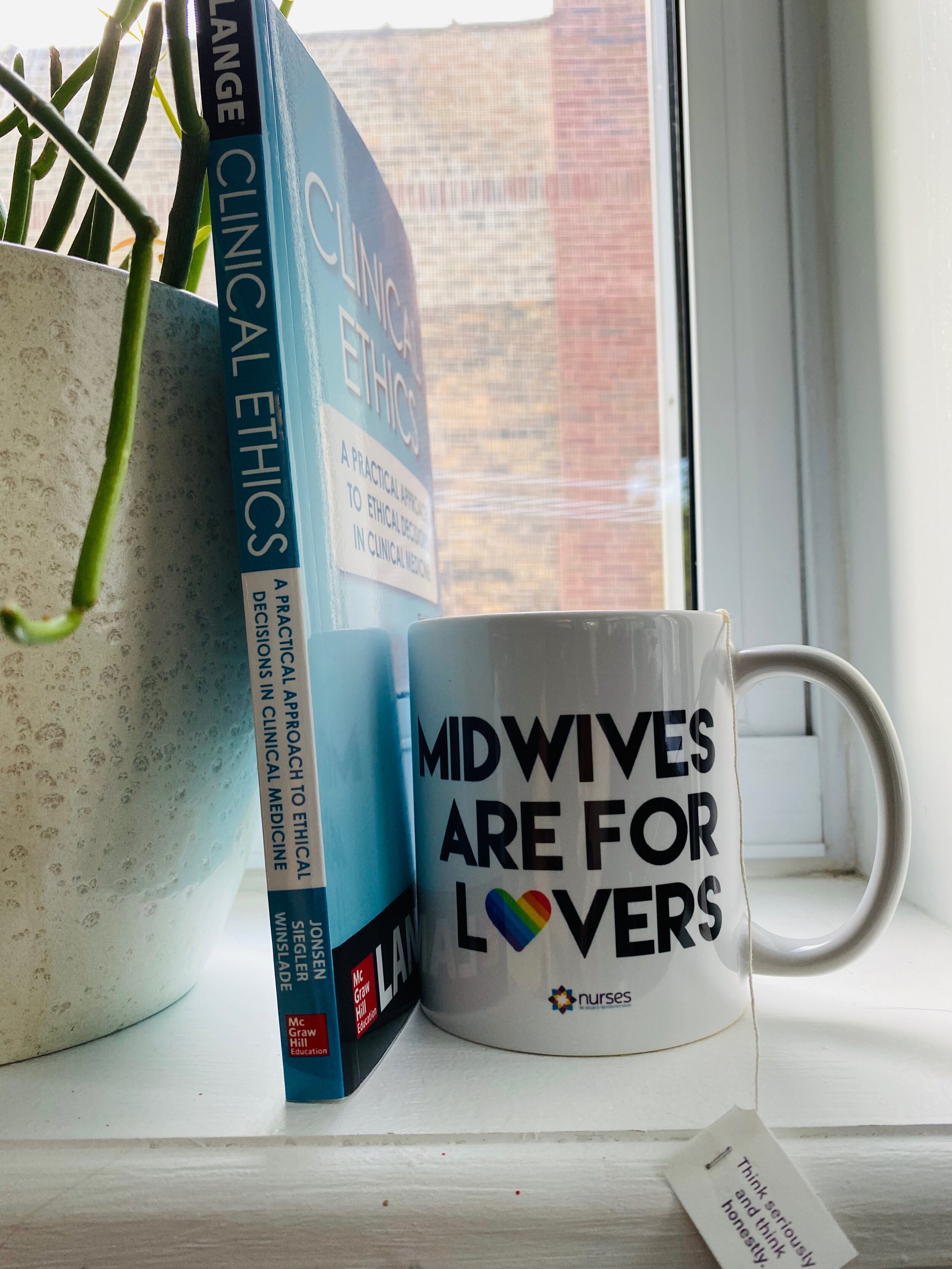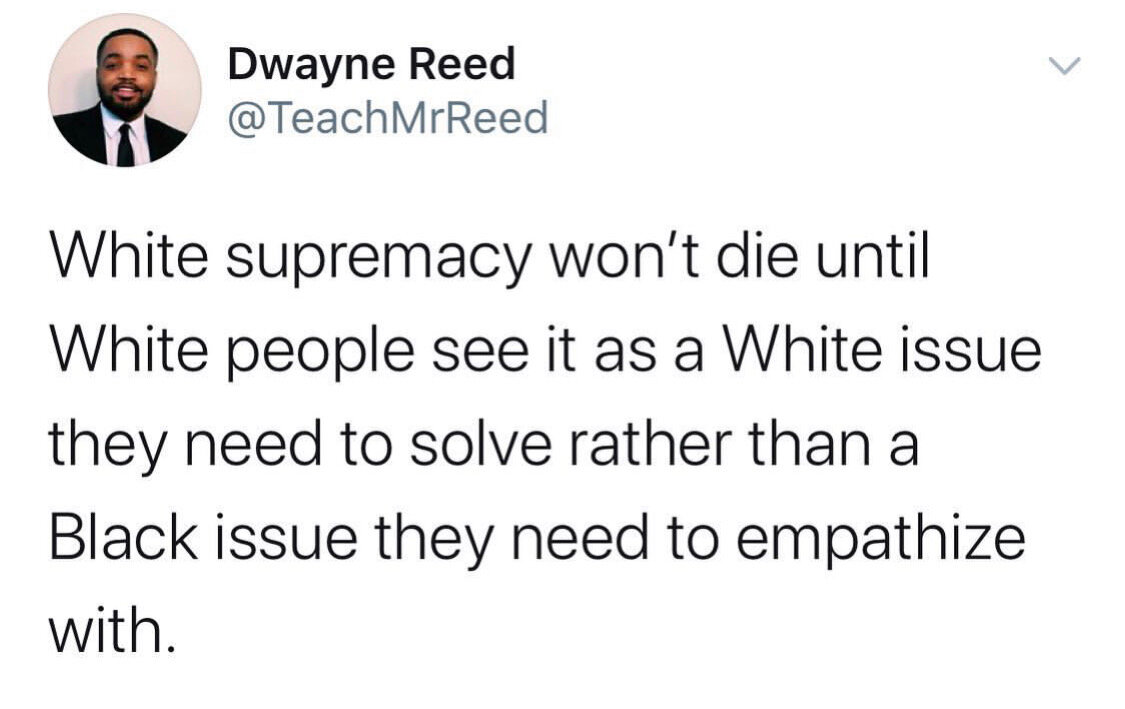Monthly Coffee Date

Well the end of June certainly snuck up unexpectedly, after what felt like four very long weeks. For me, this month felt like a competition of opposites, extreme highs and lows. Sudden intense thunderstorms followed by unabashed sunshine. Monumental SCOTUS wins and losses. Balancing the seemingly opposite yet critically self-generative terms "pride" and "riot." Summer is unrelenting so far.
Take a moment and ground yourself. Let the month wash over you. Consider a few of the ways you grew this month, in love or bravery or compassion or fierceness. Consider ways you could be gentle and forgive yourself for whenever anger or disappointment remains. Consider how to move forward into a new month, and whether you want to do so stepping carefully or running full speed. Tomorrow will be here before we know it.
My morning stillness and silence is held in the moments waiting for the water to boil for my tea, even though I end up not drinking it until it's cold. Once I've sat down to write, I forget all about it. So, know that I'm probably sipping cold tea as I write this to you, and hope that yours is just as tasty hot or cold.
There is real opportunity for change right now, and in the toppling of racist statutes and the defunding of police departments, some has already happened. This month the brilliant Keeanga-Yamahtta Taylor wrote about how real change has to exist beyond challenging police departments by thoroughly reviewing the repetitive historic revolts against police that have been happening for decades, leading us to today. Absolutely read the entire piece, but here is a brief excerpt:
We cannot insist on “real change” in the United States by continuing to use the same methods, arguments, and failed political strategies that have brought us to this moment. We cannot allow the current momentum to be stalled by a narrow discussion about reforming the police. In Obama’s essay, he wrote, “I saw an elderly black woman being interviewed today in tears because the only grocery store in her neighborhood had been trashed. If history is any guide, that store may take years to come back. So let’s not excuse violence, or rationalize it, or participate in it.” If we are thinking of these problems in big and broad strokes, or in a systemic way, we might ask: Why is there only a single grocery store in this woman’s neighborhood? That might lead to a discussion about the history of residential segregation in that neighborhood, or job discrimination or under-resourced schools in the area, which might, in turn, provide deeper insights into an alienation that is so profound in its intensity that it compels people to fight with the intensity of a riot to demand things change. And this is where the trouble actually begins. Our society cannot end these conditions without massive expenditure.
In 1968, King, in the weeks before he was assassinated, said, “In a sense, I guess you could say, we are engaged in the class struggle.” He was speaking to the costs of the programs that would be necessary to lift black people out of poverty and inequality, which were, in and of themselves, emblems of racist subjugation. Ending segregation in the South, then, was cheap compared with the huge costs necessary to end the kinds of discrimination that kept blacks locked out of the advantages of U.S. society, from well-paying jobs to well-resourced schools, good housing, and a comfortable retirement. The price of the ticket is quite steep, but, if we are to have a real conversation about how we change America, it must begin with an honest assessment of the scope of the deprivation involved. Racist and corrupt policing is the tip of the iceberg.
Where are you in your anti-racism work? How does Keeanga-Yamahtta's piece speak to your knowledge about American history, and where do you need to learn more? Feel ready? How about this Twitter thread from my colleague Dr. Brittani James, talking about white women in anti-racism work who get it all brutally wrong and do more harm than good? How can you see yourself in what Dr. James says? And if you haven't already, please take this Free Class: Race, Gender, and American Gynecology by Dr. Deirdre Cooper Owens.

I celebrated pride month in a variety of ways, one of which included buzzing through the newest season of Queer Eye. For all its problematic aspects, there is so, so much joy in that show and I'll take joy when and where I can these days. My favorite quote from the season was when Jonathan Van Ness was marveling at a haircut he had recently given someone and exclaimed, "Honestly how did I get so good at my job?!" And that's the energy I want to bring to midwifery in July. Sticking with the theme of highs and lows, reading this article about the darkness within the documentary "A Secret Love" rang true: the movie was swollen with historic and current homophobia, and left me wanting a beautiful love story free from tragedy, but that was not what their story was nor how it was told in relation to their family and their aging bodies. Their love thrived wildly over the years, and sprinkles of that trickled in throughout the story, if only the filmmaker or the family could have uplifted such richness. Queerness is still so complicated, as well as joyful and resilient. Queerness through the eyes of straight people will never be portrayed as it would by our own lens, and movies about people that are not crafted by others in their identity or community should come with disclaimers so it hurts a little less to realize it afterward.
June joy brought me further into the work of Feminist Midwife, LLC. and the adventures ahead of me Not only am I six months into writing my weekly newsletter, I am now embarking on projects and work that brings vulnerability in its newness, and an official embodiment of that work beyond my moniker was long overdue. I still celebrate these wins, and am grateful for this self-built joy that keeps on giving.
Getting back to basics feels like where my mind and heart are right now. I am listening to podcasts about hiking and survival, speed-watching "Alone" and listening to "H is for Hawk" by Helen MccDonald. I am working on a morning practice to review my current life goals as well as take time to be creative, and I find writing prompts and thoughtful reflections stabilizing when so many other pieces of life refuse to settle down. In working on writing a personal mission statement, the prompt "Imagine your 80th birthday. Who will be there with you? What tribute statement would you like them to make about your life?" really hit in a strong way, and I continue to think about it. Another prompt is The Audre Lorde Questionnaire To Onesself.
Tomorrow brings my wife and I moving into our first home together, after living in our condo for the past three years. A new home brings so much joy and excitement and work and love, and I'm overjoyed for all of it. Next week brings the start of my Ethics Fellowship, which I wrote about last month. I have all kinds of trepidation and imposter syndrome about being the first midwife admitted and trying to see where I fit in after reading the bios of my cohort who'll be on the Zoom calls. I also have a lot of pride about what brought me to this point in my life, and am overjoyed to be on this next path.
I hope that July brings more stability, tranquility, learning, bravery, and joy. Would love to hear about your June, and what July will bring to you. (I don't want to jinx it but I really, really, really hope that July brings the midwife students back!!!).
In solidarity,
Stephanie (Feminist Midwife)

